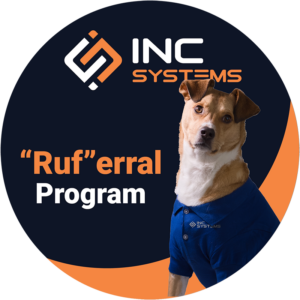Mastering Technology For Hybrid Workplaces
The shift to hybrid work has transformed how businesses operate, requiring a seamless blend of in-office and remote work environments. While hybrid work offers flexibility and productivity benefits, it also presents technology challenges that can impact security, collaboration, and efficiency. At INC SYSTEMS, we help businesses master the technology needed to create a secure, efficient, and scalable hybrid workplace. Here’s how your organization can leverage technology to thrive in this evolving work model.
Strengthen Cybersecurity for a Distributed Workforce
With employees working from multiple locations, cybersecurity risks increase. Hybrid workplaces need a comprehensive security strategy to protect sensitive data and prevent cyber threats. Key measures include zero trust security to require authentication and authorization for every access attempt, multi-factor authentication (MFA) to add an extra layer of security beyond passwords, endpoint protection to ensure company devices are protected with antivirus software, firewalls, and security updates, and VPNs & secure access to use encrypted connections for remote employees accessing company resources. Implementing these safeguards helps prevent cyberattacks and keeps business data secure, no matter where employees work.
Invest in Cloud-Based Solutions
Cloud technology is the backbone of hybrid work, enabling employees to access files, collaborate, and work seamlessly from any location. Essential cloud-based solutions include Microsoft 365 or Google Workspace for centralized platforms for email, file sharing, and collaboration, cloud storage (OneDrive, SharePoint, Google Drive) for secure access to files from any device, and virtual desktop infrastructure (VDI) to provide employees with a consistent work environment regardless of location. By leveraging cloud solutions, businesses can improve flexibility, enhance security, and reduce IT infrastructure costs.
Optimize Collaboration Tools
Effective communication is crucial for hybrid teams. Businesses must adopt the right tools to ensure smooth collaboration between remote and in-office employees. Key tools include video conferencing (Zoom, Microsoft Teams, Google Meet) to enable real-time communication and virtual meetings, project management software (Asana, Trello, Monday.com) to keep teams organized and projects on track, and instant messaging (Slack, Microsoft Teams) to foster quick communication without overwhelming email inboxes. Integrating these tools into daily workflows ensures that hybrid teams stay connected and productive.
Standardize IT Equipment and Support
A hybrid workplace must have consistent and reliable technology across all work environments. Businesses should provide standardized hardware (laptops, monitors, headsets) for both remote and in-office employees, ensure high-speed internet access and offer remote employees a stipend for connectivity if needed, and implement remote IT support to assist employees with technical issues regardless of location. By standardizing IT infrastructure, businesses can minimize disruptions and provide a seamless work experience for employees.
Implement Smart Office Technology
The modern hybrid office must support both in-person and remote work. Consider integrating hot desking solutions to allow employees to book desks or meeting rooms as needed, smart conference rooms with AI-powered cameras, high-quality microphones, and digital whiteboards to improve remote meeting experiences, and IoT and smart office automation to optimize lighting, climate control, and security systems for efficiency and sustainability. A well-equipped office enhances productivity and ensures that in-office time is as effective as remote work.
Establish Clear Hybrid Work Policies
Technology alone isn’t enough—organizations must define clear hybrid work policies to maintain consistency and security. These should include security guidelines for remote work (password management, VPN use, device policies), expectations for communication and availability to ensure team cohesion, and collaboration guidelines to align work across in-office and remote employees. A structured approach to hybrid work helps businesses avoid confusion and ensures that all employees are on the same page.
Leverage IT Support & Managed Services
Managing technology for a hybrid workplace can be complex. Partnering with a Managed IT Services Provider (MSP) like INC SYSTEMS ensures proactive IT monitoring and support to prevent downtime, security management to protect sensitive business data, and cloud and infrastructure optimization for seamless hybrid work. By outsourcing IT management, businesses can focus on growth while ensuring their technology remains efficient, secure, and scalable.
Master Hybrid Work with INC SYSTEMS
Hybrid work is here to stay, and mastering the right technology is essential for success. At INC SYSTEMS, we help businesses implement, manage, and optimize IT solutions tailored to their hybrid work needs. From cybersecurity and cloud solutions to collaboration tools and IT support, we ensure your team stays productive—wherever they work.
In business since 2004, INC SYSTEMS based out of Flint, Michigan is an MSP that understands how to leverage technology, implement solutions to meet the needs of our clients, and exceed their expectations. We do this by taking the time to understand the needs of a particular business or project and recommending specific solutions to reach the goals set forth.






